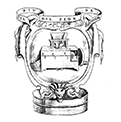Informazioni
- Datazione: 1932-2005
- Luogo di nascita: Borgo San Lorenzo (Toscana)
- Note biografiche:
Ruggero Stefanini (1932-2005)
Emeritus Professor of Italian Studies and Near Eastern Studies (Univ. of Berkley)
Ruggero Stefanini was Porfesor Emeritus of Italian Studies and Near Eastern Studies.
Professor Ruggero Stefanini was born in Borgo San Lorenzo, Italy, a town not too far from Florence. In addition to Italian, its inhabitants speak, or spoke until recently, a Tuscan dialect similar to that spoken in Florence, where, as in Borgo San Lorenzo, the citizens are, or once were, bilingual. This is worth mentioning because language was so prominently of the essence in Ruggero. When he spoke in Italian, strictly Italian, you would hear a cultivated, fluidly elegant native speaker. When speaking with his friends, however, he would sometimes suddenly change the pitch of his voice in a word or two, or an idiomatic phrase, from his dialect. It added something picturesque, something, one might say, vaguely picaresque or even racy to his speech and his character. It never mattered that we might not be sure just what the phrase meant: he made it sound intriguing.
After his early years as a student undergoing the rigorous intellectual training of the Liceo Classico “Galileo Galilei” in Florence, he studied at the city’s university (in the Facoltà di Lettere e Filosofia), where his major fields were classical philology and Indo-European historical linguistics. He graduated with highest honors, receiving the doctoral degree with a dissertation on the ancient language of the Hittites. Meanwhile he continued to read deeply in the history and literature of medieval Italy. From the time he joined the University of California, Berkeley faculty in 1961, Ruggero held a split appointment: two-thirds in the (then) Department of Italian (and in Italian Studies after 1994), one-third in the Department of Near Eastern Studies. He also immediately became a faculty member of the Group in Romance Philology, the Graduate Program in Ancient History and Mediterranean Archaeology, and the Program in Medieval Studies. He was also very much at home in Biblical studies and ecclesiastical history.
Ruggero was, indeed, a man of wide interests and vast erudition, a seemingly inexhaustible source of knowledge on many matters. His erudition was, however, always worn lightly. Neither colleagues nor students were ever made to feel uncomfortable in conversation with him or when being taught something by him. One came away knowing that one had learned something of significance, that one had been enriched, without the feeling of having been lectured to or interrogated. He had the knack—the art, if you like—of introducing a new fact to you nonchalantly or even apologetically; unless he was overtly, but always playfully, acting out the role of teacher. This was done with unfailing good nature, and not without self-irony. If he was inveterately theatrical, he was uncalculatingly and sympathetically so.
